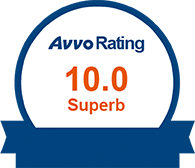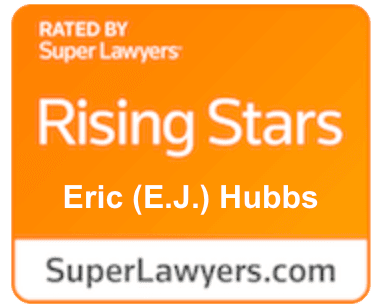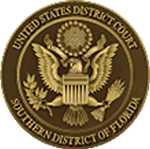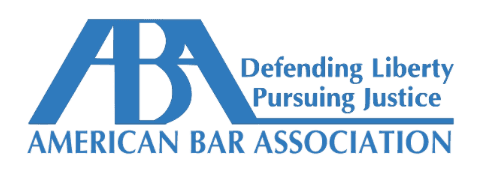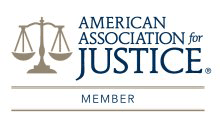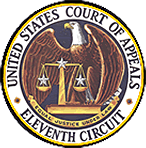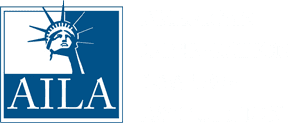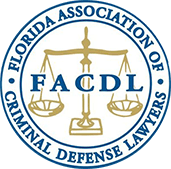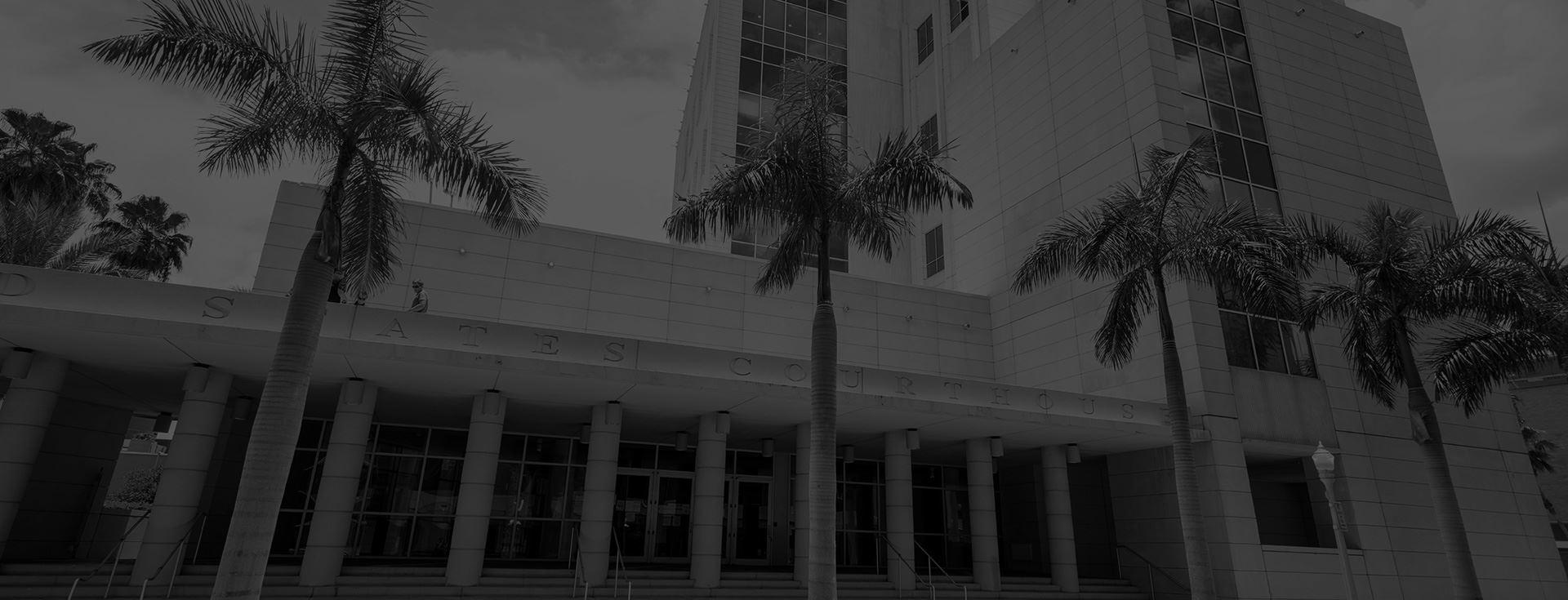
Your Case Deserves Immediate Attention - Call Hubbs Law Today
Miami Child Abuse Attorney
Child abuse is a serious and unfortunately common form of domestic violence in the state of Florida. According to the National Child Abuse and Neglect Data System, there were over 250,000 reports of child abuse in 2021 alone. In Florida, child abuse is a serious criminal offense that can result in significant penalties. A skilled defense attorney can help you fight these charges and work to achieve the best possible outcome for your case. Whether you are facing charges of physical abuse, sexual abuse, or neglect, our Miami Child Abuse Attorneys can help provide you with the guidance and support you need to protect your future and your freedom.
What is Child Abuse?
Under Florida statute § 827.03(b), the crime of child abuse is defined as “intentional infliction of physical or mental injury upon a child or an intentional act that could reasonably be expected to result in physical or mental injury to a child.” This crime can be committed against any child under the age of 18. In Florida, child abuse is a criminal offense that can take many different forms. Child abuse can involve physical abuse, sexual abuse, emotional abuse, or neglect.
Physical abuse can include hitting, kicking, shaking, or any other action that causes physical harm to a child. Sexual abuse can involve any sexual activity with a child, including touching, exposure, or penetration. Emotional abuse can include verbal abuse, threats, or other behavior that causes emotional harm to a child. Neglect can involve failing to provide a child with proper care, such as food, shelter, medical care, or supervision.
Under Florida law, child abuse is a felony offense that can result in significant penalties, including fines, probation, and imprisonment. The severity of the penalties will depend on the specific circumstances of the case, including the age of the child, the type of abuse involved, and the extent of the harm caused.
Types of Abuse
- Physical Abuse: Any intentional act that causes physical harm or injury to a child, such as hitting, kicking, punching, slapping, burning, or otherwise harming a child's body. Physical abuse can also involve the use of weapons or other objects to cause harm to a child. There is a non-exhaustive list of physical abuse but any type of harm is considered abuse if it is intentional and causes harm to a child.
- Sexual Abuse: Any sexual activity with an adult and a child under the age of 18, including sexual contact, sexual assault, and sexual exploitation. Sexual abuse can take many forms, including rape, molestation, incest, or exposure to pornography. Sexual abuse can have serious long-term psychological consequences for the child, including depression, anxiety, and PTSD.
- Emotional Abuse: Any intentional infliction of emotional or mental harm on a child such as the use of words or actions to undermine a child's self-esteem and confidence. Emotional abuse can take many forms, including name-calling, belittling, humiliation, threats, intimidation, rejection, and isolation. Emotional abuse can have serious long-term consequences for a child's mental health and well-being.
Types of Neglect
Under Florida statute § 827.03(e)(1), neglect of a child is “a caregiver’s failure or omission to provide a child with the care, supervision, and services necessary to maintain the child’s physical and mental health.” There are several types of neglect, including but not limited to:
- Physical neglect: Failure to provide a child with adequate food, clothing, shelter, medical care, or supervision. Physical neglect can also occur when a child is abandoned or left alone for extended periods.
- Emotional neglect: Failure to provide a child with adequate emotional support, such as love, affection, and attention. Emotional neglect can also occur when a child is exposed to chronic family conflict or violence.
- Medical neglect: Failure to provide a child with necessary medical care, including preventive care, diagnostic testing, and treatment for medical conditions.
Elements of Child Abuse
To prove the crime of Child Abuse, the State of Florida would be required to prove the following two elements beyond a reasonable doubt:
- The Defendant knowingly or willfully abused the victim by one of the following means:
- Intentionally inflicting physical or mental injury upon the victim;
- Committing an intentional act that could reasonably be expected to result in physical or mental injury to the victim; or
- Actively encouraging another person to commit an act that resulted in or could reasonably have been expected to result in physical or mental injury to the victim.
2. The victim was under the age of 18 years.
In addition to the basic elements of Child Abuse, if the State can prove beyond a reasonable doubt that a Defendant engaged in any of the following acts, then the Defendant can be charged with Aggravated Child Abuse, increasing the charge from a third degree felony to a first degree felony:
- The Defendant committed an Aggravated Battery on the victim;
- The Defendant willfully tortured the victim;
- The Defendant maliciously punished the victim;
- The Defendant willfully and unlawfully caged the victim; or
- The Defendant knowingly or willfully committed Child Abuse upon the victim and, in doing so, caused great bodily harm, permanent disability, or permanent disfigurement to the victim.
Elements of Child Neglect
To prove the crime of Child Neglect, the State of Florida would be required to prove the following three elements beyond a reasonable doubt:
- The Defendant either:
- Willfully or by culpable negligence failed or omitted to provide victim with the care, supervision and services necessary to maintain the victim’s physical or mental health; or
- Failed to make a reasonable effort to protect victim from abuse, neglect, or exploitation by another person.
2.The Defendant was a caregiver to the victim; and
3. The victim was under the age of 18 years.
In addition to the basic elements of Child Neglect, if the State can prove beyond a reasonable doubt that a Defendant caused great bodily harm, permanent disability, and permanent disfigurement, the charge is increased from a third degree felony to a first degree felony.
Penalties for Child Abuse and Neglect
In Florida, the penalties for Child Abuse or Child Neglect depend upon the specific charge by the State of Florida. Possibilities could include:
- Child Abuse – third degree felony, punishable by 5 years in prison and fines up to $5,000.
- Aggravated Child Abuse - first degree felony, punishable by 30 years in prison and fines up to $10,000.
- Child Neglect (Without Great Bodily Harm, Permanent Disability, or Permanent Disfigurement) - third degree felony, punishable by 5 years in prison and fines up to $5,000.
- Child Neglect (With Great Bodily Harm, Permanent Disability, or Permanent Disfigurement) – second degree felony, punishable by up to 15 years in prison and fines up to $10,000.
Defenses to Child Abuse or Neglect
If you have been accused of child abuse, it is essential to have an experienced criminal defense attorney who understands the different defenses available. Some of the most common defenses include:
- Lack of intent: Child abuse requires intent or knowledge that the conduct is likely to cause injury or harm to the child. The defendant may be able to argue that they lacked the necessary mental state for the offense if they did not know that their conduct would likely cause injury or if they did not intend to cause harm.
- False allegations: In some cases, a defendant may argue that the allegations of child abuse or neglect are false and were made out of malice or revenge by the child or someone else. Unfortunately, false accusations of child abuse are not uncommon, particularly in contentious divorce or custody cases. If you believe you have been wrongly accused of child abuse, it is important to work with an experienced criminal defense attorney to investigate the allegations and build your defense.
- Self-defense: If the accused was acting in self-defense, they may be able to use this as a defense. In some cases, a defendant may argue that his or her actions were taken in self-defense or defense of others. For example, if the defendant was protecting himself or herself from an aggressive or violent child, this may serve as a defense to the charges.
- Justification or necessity: In rare cases, a defendant may argue that their actions were necessary to protect the child from harm, such as in cases where a child is engaging in dangerous behavior and the defendant uses physical force to prevent the child from harming themselves or others.
- Lack of evidence: The prosecution must prove their case beyond a reasonable doubt, and if there is insufficient evidence to establish the elements of the offense, the defendant may be able to argue that the charges should be dismissed.
- Lack of Injury: In order to establish the element of injury, the prosecution must show that the child suffered physical or mental harm as a result of the defendant's actions. If the child did not suffer any harm, there may be a defense to the charges.
Find An Attorney For Child Abuse in Miami, FL
Child abuse is a serious crime, and those accused of it face severe consequences if convicted. If you or someone you know has been accused of child abuse, it is important to contact an experienced criminal defense attorney immediately to protect your rights and build a strong defense.
E.J. Hubbs has expertise not just as a criminal defense attorney but also as a former prosecutor. Having handled more than 10,000 criminal cases, he possesses the knowledge necessary to offer you the best chance of a favorable result. Additionally, he is Board Certified in Criminal Trial Law by the Florida Bar, a distinction held by fewer than 1% of Florida attorneys.
Hubbs Law represents clients in all types of criminal cases, including charges involving child abuse, in Coral Gables, Pinecrest, Miami Gardens, City of Miami, Hialeah, Cutler Bay, Palmetto Bay, South Miami, and anywhere in Miami-Dade County.
Hubbs Law offers free consultations for all criminal cases. Contact us anytime to review your case or legal issue at 305-570-4802.
Additional Resources
- U.S. Department of Health and Human Services (HHS) – National Child Abuse and Neglect Data System – HHS is a federal agency created to protect the health of the U.S. people and providing essential human services. The Children’s Bureau has collected data from all 50 states, District of Columbia, and Puerto Rico, about reports of child abuse and neglect.
- National Center for Missing and Exploited Children (NCMEC)- The National Center for Missing and Exploited Children is the largest and most influential child protection organization. They have a 24/7 hotline to report child abuse or abductions.
- Centers for Disease Control and Prevention- Learn interesting facts, statistics, and steps to prevent and report child abuse in the United States.
- Department of Children and Families– Abuse Hotline – The DCF Child Abuse Hotline accepts reports 24/7 of known or suspected child abuse, neglect, or abandonment. You can call 1-800-962-2873 to make a report.
- National Domestic Violence Hotline – The Domestic Violence Hotline was founded from a grant from the Administration on Children, Youth, and Families and the U.S. Department of Health and Human Services. Find information on a domestic violence hotline that can be reached 24 hours a day 7 days a week by phone call, text, or chat.
- Miami-Dade County State Attorney’s Office - the Miami-Dade State Attorney’s Office prosecutes individuals who are charged with crimes related to domestic violence.
- Florida Courts - Find information on filing an injunction for protection against domestic violence.
- Department of Children and Families (DCF) - get domestic violence information from the Department of Children and Families who is the Florida agency tasked with protecting children in domestic violence situations. DCF has a domestic violence hotline that can be used 24/7.
- Miami-Dade Clerk of Court- find information on filing an injunction for protection against domestic violence in Miami-Dade County.

Attorneys E.J. & Erika Hubbs
As professional Miami criminal defense attorneys, we take every case personally give every client the deliberate care it deserves. Our clients become part of our family and we fight relentlessly for their rights. Read more about us to find out how we can help you.

-
Me and my wife were instantly pleased with her knowledge and professionalism
Carlos Urbina -
"Erika Hubbs assisted our company in getting one of our future Venezuelan employees an 0-1 Visa. And she was successful !! Her knowledge of the industry and her determination was great asset in this lengthy and drawn-out process."Alisa H.
-
"A loved one in our family had a very complex case and was being held in Broward County Transitional Center and faced deportation... They always kept steady communication, giving us updates, and plans of action, and answering any and all questions. Even aft"Alex M.


